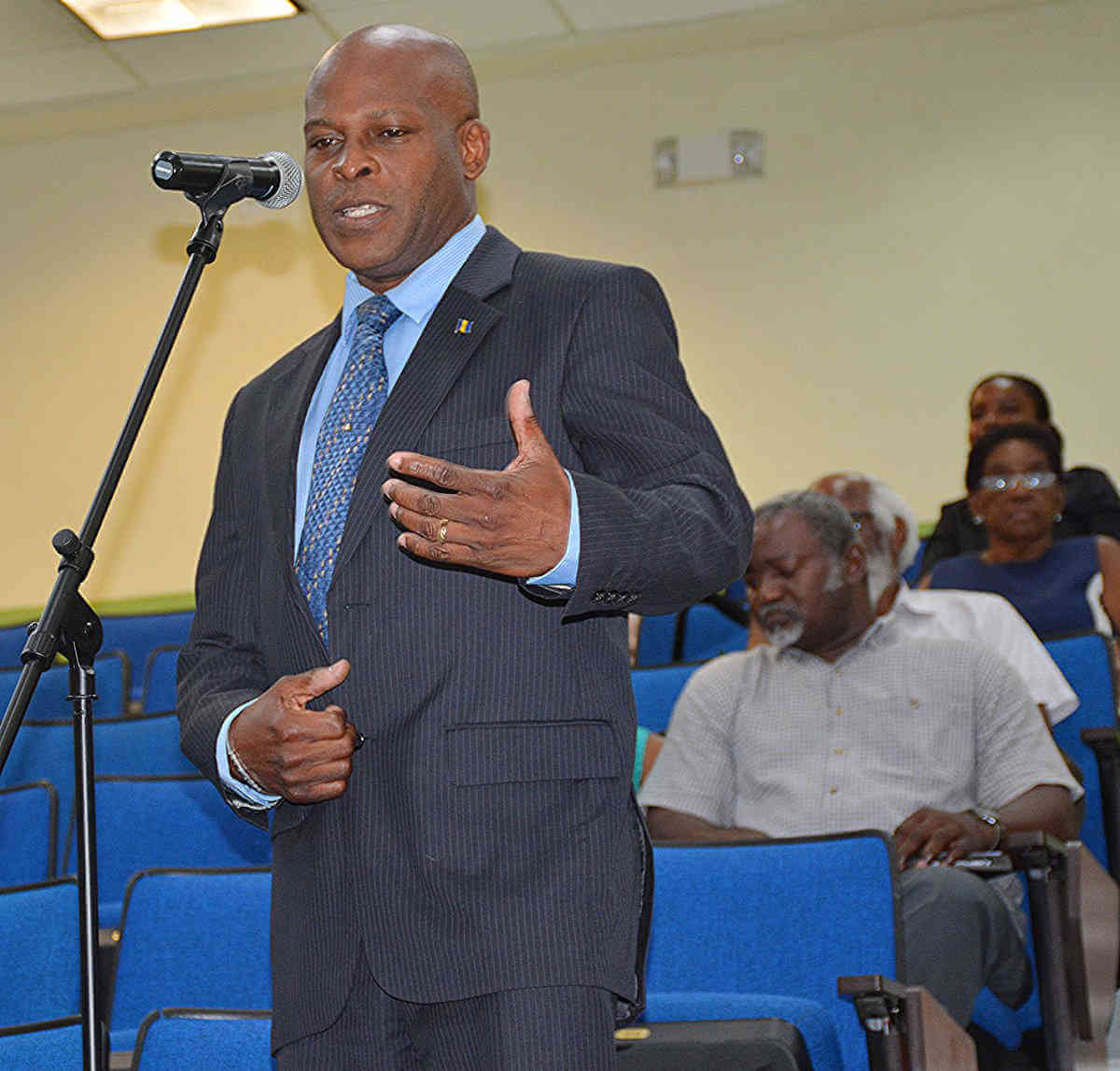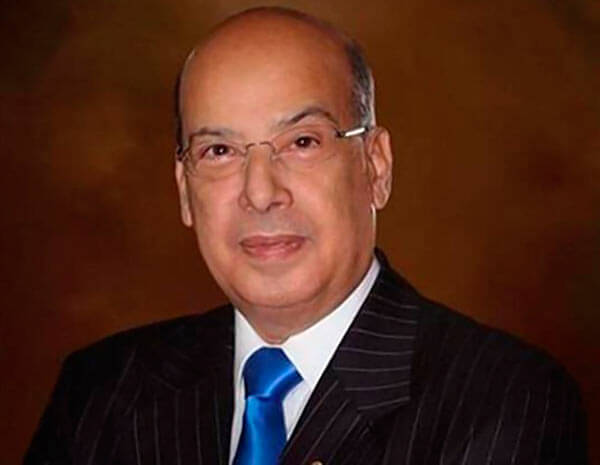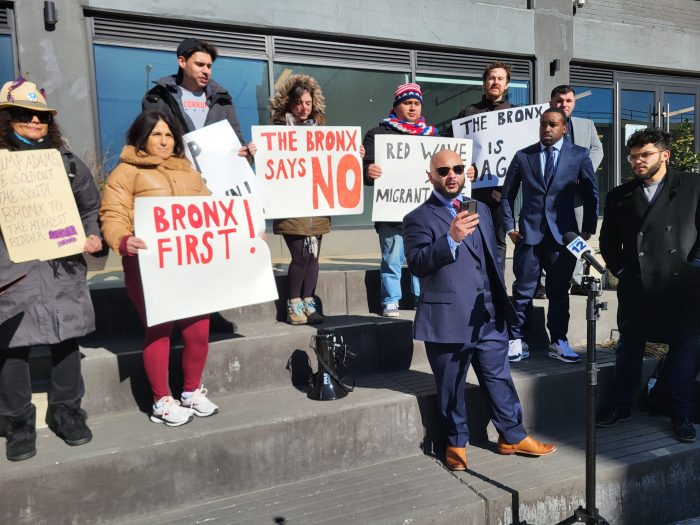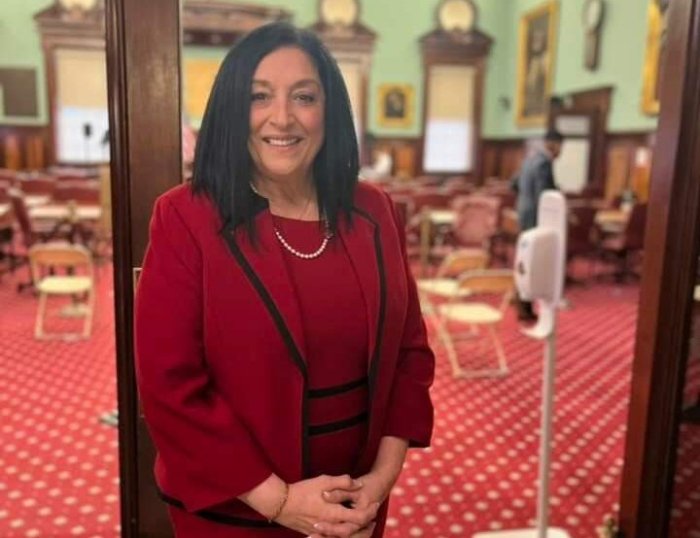While moving to tighten immigration security by introducing a state-of-the-art travel document, Barbados is opening its arms to Caribbean Community nationals who can help further develop the island.
Barbados Minister of Home Affairs, Edmund Hinkson this week made clear government’s policy on the twin-matters of national security and the opening the island’s borders for easier entry of non-nationals into the island for work, as he stressed Barbados’ need for persons capable of making a contribution.
The Barbados Immigration Department Monday unveiled an ‘epassport’ containing an electronic chip and antenna and other unspecified security features to be issued to new Barbadian applicants and those renewing their travel documents.
The electronic microprocessor chip contains biometric information on the identity of the passport holder. Through the antenna, this document applies contactless smart card technology, enabling swift and secure passage of holders through international airports.
“It would be more difficult to replace an e-passport because there is a chip in the actual cover. Anyone seeking to replicate the passport would have to remove the chip and ensure that it has the same information as on the biodata page,” explained Chief Immigration Officer, Wayne Marshall, against the backdrop of a high number of the past-issued machine-readable passports being reported stolen and suspected to be used providing false identity of some persons.
During that launch of the Barbados epassport, Hinkson touched on what he sees as the vexing issue of unreasonable delays in granting documented recognition to CARICOM nationals who have legally qualified for Barbadian citizenship.
“People who reside in Barbados must be able to have their applications before the Immigrations Department processed in a timelier manner,” said Hinkson who pointed out that allowing more skilled CARICOM nationals to live and work forms part of government’s economic vision.
“Our population is too small and we have to widen it and welcome CARICOM citizens who have expertise, who have skills, who can make a contribution to our country.”
“Not those who will be a burden financially, a security threat or a health risk,” he clarified, adding, “but those who will contribute financially, who will pay income taxes, pay NIS, spend money, buy our consumer items. That is one of the ways our economic development will progress and be sustained”.
“As far as the government of Barbados is concerned, now there will be no excuses for not facilitating the ease of [people] being able to get their applications which they have before the Immigration Department in a timely manner.”
Less than one month after his government had come to power in a historic sweep of all parliamentary seats on May 24, Hinkson had gone about implementing immigration changes to make CARICOM nationals more welcomed on the island.
Though Haiti is a full CARICOM member, its citizens had previously been made to produce entry visas for Barbados, and Hinkson said in June that government abolished this Haitian visa requirement immediately upon learning of it.
“It should not have been on in the first place. I was shocked to learn that,” he said.
“That is clear law … that was absolutely incorrect. If Haiti is a member of CARICOM and the Treaty of Chaguaramas speaks to non-discrimination and equal treatment, how can you have put visa requirements on Haitians? Why do we do this to our own people?”
“We are going to look clearly at reforming the immigration legislation of Barbados as well as the policies of it. Clearly our Immigration Act is outdated,” he said.
“We have a duty as Barbadians to the Caribbean to now advance relations with CARICOM nationals. Clearly our immigration policies and legislation have to be part of that reform.”
Consistently Barbados was among the few CARICOM countries signing onto The Protocol on Contingent Rights at the July heads of government meeting.
According to the CARICOM protocol which is not yet in force, “grants rights to CARICOM nationals exercising the right of establishment, provision of services, movement of capital or free movement of skills. Spouses and immediate dependants are also entitled to enjoy these rights.”
Grenada, Haiti, Jamaica, St. Lucia, St. Vincent and the Grenadines and Suriname are the other countries in this 15-member grouping to have so far signed on to this protocol that truly opens doors to migrating nationals and their families.

























